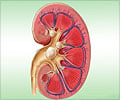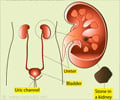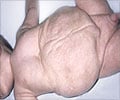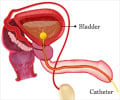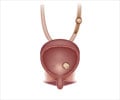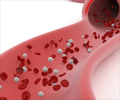Types of Stones & Specific Therapy
a) Calcium Stones
Hypercalciuria is a condition in which there is an excretion of more than 250 mg of calcium per day in the urine in women and urinary excretion of more than 275-300 mg of calcium per day in men who are on an unrestricted diet.
Very low calcium diet is not recommended for these patients. The optimal levels of calcium recommended for hypercalciuria patients is about 600-800 mg of calcium per day. Taking more than 2000 mg of calcium per day could result in hypercalciuria or hypercalcemia in people who are prone to form calcium stones.
Patients suffering from Absorptive Hypercalciuria type I are administered thiazide diuretics that help to reduce urinary calcium excretion. Certain diuretics deplete potassium levels hence potassium citrate is added to replace potassium and enhance the levels of citrate to help prevent stone formation. Besides tablets or syrup with potassium citrate the patient is encouraged to consume citrus fruits such as orange and lime.
Patients with Absorptive Hypercalciuria type II require dietary restrictions on calcium and sodium. These patients may also benefit from administration of thiazide diuretic and potassium citrate.
Orthophosphate, Neutra-Phos-K are given to treat absorptive hypercalciuria type III while renal leak hypercalciuria requires thiazide diuretics and potassium citrate supplementation.
b) Oxalate stones
Hyperoxaluria is a condition in which excessive oxalate is present in the urine. This condition exists alongside bowel disorders such as inflammatory bowel disease and can also occur after certain gastric bypass procedures. Low fat and low oxalate diet is mandatory. This should be followed up with calcium supplementation as calcium helps to bind the oxalate in the bowel, prevent excessive urinary oxalate excretion and inhibits the formation of calcium oxalate stones.
Cholestyramine, magnesium, Vitamin B6, potassium citrate, are also administered to these patients.
c) Uric Acid Stones
Hyperuricosuria is a condition in which the patient excretes large quantities of uric acid through the urine. These patients also tend to develop calcium stones.
Diet changes are vital for these patients and this involves a low protein diet with reduced intake of fish, chicken and meat.
Potassium Citrate is given to maintain the urine pH between 6.5-7.5 so that uric acid crystals do not form stones but are excreted through urine.
When serum uric acid level or urinary uric acid is significantly increased Allopurinol tablets are given. These medications are often given at night. The pH of urine can be checked with the help of nitrazine paper.
d) Cystine Stones
Patients should follow a diet low in protein and sodium. If urinary cystine output is very high, medications like D-penicillamine or Thiola are given. Potassium citrate is given to keep the urine alkaline.
e) Low levels of citrate (hypocitruria) leads to stone formation. This problem is corrected with potassium citrate supplementation.

